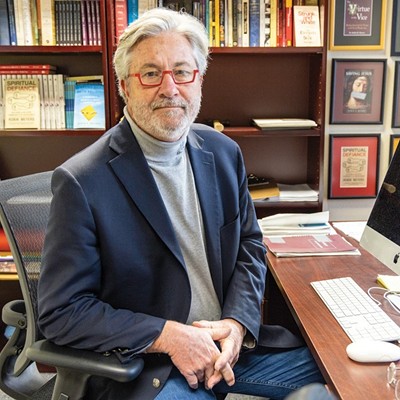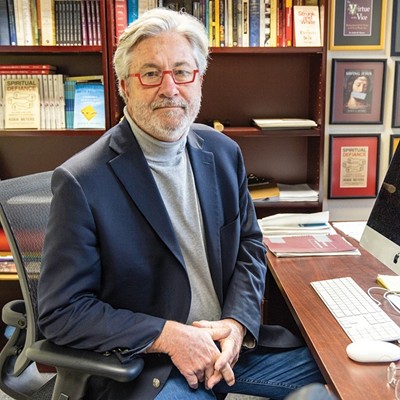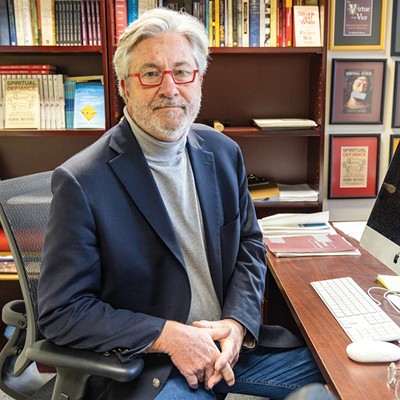Arguments ad nauseam over who is number one in football, and why the Bowl Championship Series is the Great Satan have overshadowed a much more important debate in Oklahoma about what kind of state we really live in, and why we refuse to add "sexual orientation" to our hate-crime laws. It took the murder of Matthew Shepard, beaten and left to freeze to death on a fence post in Wyoming, to awaken the nation to the depth of anti-gay hatred in this country. Now Oklahoma can sadly claim its own Shepard: Steven Domer, allegedly strangled to death by a white supremacist group's self-proclaimed "general" just for being gay.
The 62-year-old Domer was last seen on Oct. 26 and found Dec. 4, his body bound in duct tape and a wire hanger twisted around his neck. While most states enhance the penalty for hate crimes, Oklahoma does not. The argument: All crimes are hate crimes. What's more, argue those who oppose hate-crimes legislation, the perpetrators of this heinous act can be prosecuted to the full extent of current law, and even receive the death penalty.
At a press conference I attended with other faith leaders at Church of the Open Arms, one of the reporters asked a familiar question: "Is there any evidence that of the 37 states with hate-crimes legislation on the books, there has been any reduction in hate crimes?" In other words, can you give us some empirical data to support what you propose? Can you show us evidence that something will work before we do it?
The Rev. Mark Christian stepped to the microphone and made an impassioned plea for something beyond empirical data.
"Change is a slow process," he said, "and we are trapped in the mentality of using numbers to determine everything "¦ test scores for children, tangible payoffs from our tax dollars " it's all about numbers."
The sad truth is that if we applied this standard to the making of our laws, we would never have made progress in passing legislation that recognizes that some groups are the target of crimes just because of who they are, not because of what they've done. We don't add sexual orientation to our hate-crimes legislation because we live in a deeply homophobic state.
Current laws distinguish between crimes in appropriate ways, especially in determining whether the murder was a crime of passion, or whether it was premeditated. At the bottom of the murder food chain are those crimes committed by people who choose a victim at random because of their ethnic, religious or sexual identity. In the south, it was the lynching of blacks on suspicion of a crime, or just for the fun of it. In what we regard as "uncivilized" parts of the world, women are considered guilty until proven innocent, and are often brutally murdered for the crime of "shaming" their families.
It is obvious that Oklahoma recognizes that some hate crimes are heinous, but why do we protect some groups by the force of law, but not members of the gay community? If you want statistics to back up the prevalence of hate crimes against gays, they are available. About half are the result of racial hatred, but more than one in 10 is the result of anti-gay hatred.
The way a society writes its laws has tremendous symbolic importance. Adding sexual orientation to the list of hate crimes in the state of Oklahoma would not only correct a long-standing injustice, it would say to all lesbian, gay, bisexual or transgender Oklahomans that they matter, and that the hatred still directed against them is absolutely, positively intolerable.
Why should faith communities lead the way? Either all of us matter, or none of us do.
Meyers is minister of Mayflower Congregational Church of Oklahoma City and professor of rhetoric in the philosophy department at Oklahoma City University. His sermons can be heard at 9:30 a.m. Sundays on KOKC-AM 1520.















